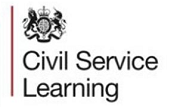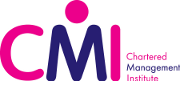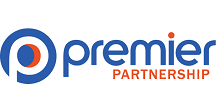





Structure of the qualification | Assessment | What exactly is involved? | What do I need to do first? | What do I need to produce? | How is my work assessed? | What support will I have? | Policies and Codes of Practice
The Level 5 qualifications in Management and Leadership are designed for middle managers and those aspiring to senior management who want to develop key skills such as managing resources, recruitment and information management.
Level 5 Management and Leadership qualifications are made up of a number of units. Each unit is worth a number of credits. The approximate number of hours each unit should take you to complete are called guided learning hours (GLH).
Guided learning hours are made up of:
Within your Management and Leadership qualification there is currently the choice of studying for three different grades. Your choice of grade will be based on factors such as your current job role and previous managerial experience. The three grades are:
To achieve an Award you need to complete any combination of units to 6 credits, with approximately 20-25 guided learning hours.
To achieve a Certificate you need to complete any combination of units to 13 credits, with approximately 45-55 guided learning hours.
To achieve a Diploma you need to complete any combination of units to 38 credits, with approximately 120 - 125 guided learning hours.
If you gain an Award in your qualification, you have the option to progress to a Certificate. If you gain a Certificate in your qualification, you have the option to progress to a Diploma.
To achieve success in a particular unit you need to show that you are able to meet the assessment criteria. There are a number of ways in which you can do this. These include your day-to-day work activities and the learning opportunities that you undertake as part of your normal professional development.
Many of the things you do as part of your development and applying this to your work will give you evidence that shows you fulfil the assessment criteria. How you get your evidence assessed is in the section: How do I get my work assessed?
The accredited qualification pathway sits beside the non-accredited pathway. This means that you will be undertaking some of the same learning opportunities as colleagues who have chosen not to follow the accreditation route. The difference is you will submit your evidence to show how you have applied this learning and met the CMI standards.
The accredited qualification pathway is designed to lead to a qualification so there will be some extra activity you need to do to provide the evidence that you meet the assessment criteria.
You will have already agreed the level and units you are aiming for with your Line Manager, and which development opportunities are the most appropriate for you.
Here is a list of the qualifying units available at Level 5.
|
Level 5 |
Qualifying units mapped to Management Essentials |
Credits |
GLH |
|---|---|---|---|
|
Unit 5001 |
Personal development as a manager and leader - this unit focuses on your personal professional development, how to plan resources accordingly, how to implement and evaluate your personal development plan and an overall awareness of staff welfare. |
6 |
20 |
|
Unit 5002 |
Information based decision making - this unit focuses on the identification, analysis and presentation of data and information to support decision making, alongside the ability to communicate in a way that supports business decisions. |
7 |
25 |
|
Unit 5003 |
Managing team and individual performance - this unit focuses on the identification and assesment of performance objectives for your team in order to provide advice, guidance and support to improve performance, alongside the ability to apply the organisation's disciplinary and grievance procedures. |
9 |
30 |
|
Unit 5004 |
Practices of resource management - this unit focuses on your ability to identify, select and use the resource supply chain to meet planned objectives. |
7 |
25 |
|
Unit 5005 |
Meeting stakeholder and quality needs - this unit focuses on how to identify stakeholders, their requirements, how to apply and improve quality standards whilst promoting improvement and change. |
6 |
25 |
|
Unit 5006 |
Conducting a management project - this unit focuses on conducting research using sources and analysis of data to make conclusions and recommendations to achieve a project aim and show results. |
10 |
35 |
|
Unit 5010 |
Planning for development - this unit focuses on the ability to devise, identify and plan for individual development to meet organisational objectives in the form of a personal development plan with an evaluation of progress accordingly. |
6 |
20 |
|
Unit 5011 |
Managing recruitment, selection and induction - this unit focuses on the legality of the recruitment process along with the ability to conduct a selection process. |
7 |
25 |
|
Unit 5013 |
Leadership practice - this unit focuses on the differences between management and leadership, the principles that support organisational values and the ability to apply leadership styles to achieve organisational objectives. |
7 |
30 |
|
|
|
|
|
Each unit lists a number of learning outcomes and assessment criteria.
Discussions with your Line Manager are an integral part of your personal development planning, and they are a key part of your progress towards your qualification. The notes you make within and around these discussions provide evidence for assessment.
There is a template for you to use to make notes of these discussions.
Information on what to do with your notes is provided in the section: How is my work assessed?
Please Note: Unit 5006 requires the candidate to undertake a work-based project as part of the assessment criteria.
Each qualification, Award, Certificate or Diploma, has its own requirement for evidence. You will be guided to the evidence field for that qualification by clicking on the link to the units you have enrolled for. You will find these links in the password-protected area.
Each unit section will give you details of the process you need to follow and any documentation you need to complete.
You will be provided with evidence documents that you need to complete.
The assessment process considers your evidence and is specific to each qualification. This evidence is drawn from your day-to-day activities and the learning journey you are undertaking.
The assessment will use the following:
Your work can take up tp 6 weeks to be assessed, as it has to ge through three stages of marking. The first being the marking of your work, the second is the verification of your work and the assessors marking and the third stage is sign off by CMI.
Premier Partnership
As well as handling the technical aspects of the accreditation process, Premier Partnership is committed to providing additional learner support, for example if you have any queries about your registration with CMI or if you have any special requirements.
You can contact Premier Partnership directly at quals@premier-partnership.co.uk or by telephoning the help desk on 01302 361226.
Telephone enquiries will be responded to in normal working hours (09:00 to 17:00 Monday to Friday) or for messages left outside of normal working hours within one working day.
Emails will normally be responded to within 48 hours.
CMI website
As a registered learner with CMI you have access to a wealth of learning resources. These include:
You can access this through the Management Direct resource website
Your Line Manager
Your Line Manager already plays an important role in your professional development. As you progress towards your qualification, your Line Manager will support you in a number of ways. These include:
The Line Manager Guide clarifies their role in supporting you through the qualification.
Civil Service Learning
You will already be aware of the wide range of learning opportunities available to you on the Civil Service Learning portal. These include:
Both CMI and Premier Partnership work in accordance with a number of policies and codes of practice to ensure that they carry out their responsibilities in a fair, equitable and legal manner.
Policies and procedures that are particularly relevant to you as a learner are:
CMI
Premier Partnership
Policies and procedures are based on ACAS guidelines and codes of practice.You may request copies of these by contacting Premier Partnership directly at quals@premier-partnership.co.uk